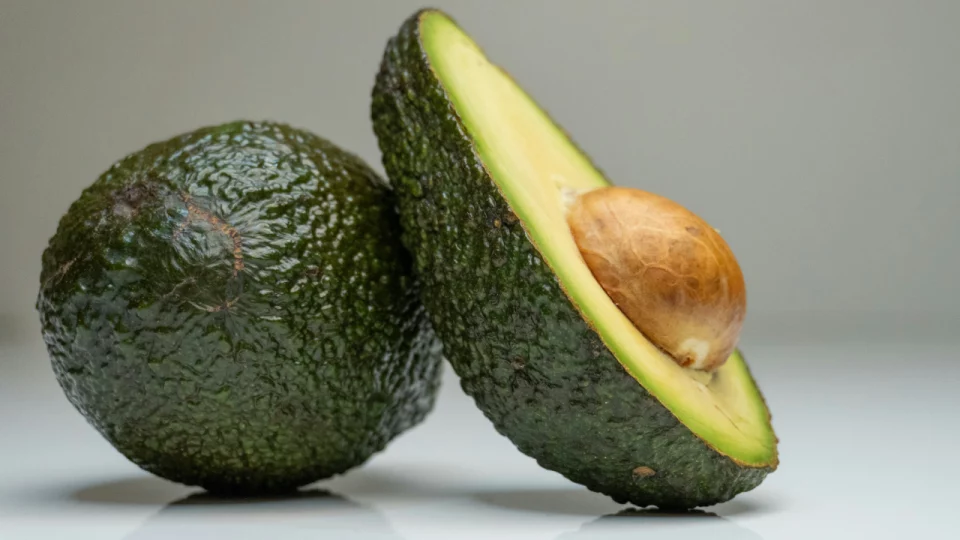Avocados have long been hailed as a superfood, and for good reason. Native to Central and South America, this green fruit, often referred to as “nature’s butter,” is more than just a tasty addition to your toast. Packed with nutrients, healthy fats, and antioxidants, avocados offer a myriad of health benefits that can improve your well-being in ways you may not have imagined. From heart health to better digestion, incorporating avocados into your diet may be the key to unlocking better health.
Avocados are loaded with essential vitamins and minerals that make them a nutritional powerhouse. Just one medium avocado contains:
- Vitamin K: 26% of the recommended daily intake (RDI)
- Vitamin C: 17% of the RDI
- Vitamin E: 10% of the RDI
- Potassium: 14% of the RDI (more than a banana)
- Folate: 20% of the RDI
- Vitamin B5 and B6: 14% and 13% of the RDI, respectively
In addition to these, avocados contain small amounts of magnesium, manganese, copper, iron, zinc, phosphorus, and vitamins A, B1, B2, and B3. With such a wide range of nutrients, avocados contribute to everything from bone health to proper immune function. Moreover, their nutrient density is why avocados are considered a superfood, delivering an impressive nutritional punch in a small package.
Table of Contents
Heart Health: A Fruit for Your Cardiovascular System
One of the most significant ways avocados can boost your health is by supporting cardiovascular health. Avocados are rich in monounsaturated fats, primarily oleic acid, which is the same type of fat found in olive oil. These healthy fats are known to lower bad cholesterol (LDL) and raise good cholesterol (HDL), reducing the risk of heart disease and stroke.
In a world where heart disease remains the leading cause of death globally, adding heart-friendly foods like avocados to your diet is more important than ever. A study published in the Journal of the American Heart Association found that eating one avocado a day as part of a heart-healthy diet can significantly lower LDL cholesterol levels, particularly in people who are overweight or obese.
Moreover, avocados are packed with potassium—a crucial mineral that helps regulate blood pressure by counterbalancing the effects of sodium in the diet. With more potassium than a banana, avocados help reduce hypertension and lower the risk of heart attack and stroke.
Weight Management: A Filling and Satisfying Superfood

Contrary to the misconception that avocados are fattening, they can actually be a great addition to a weight management plan. Their high content of healthy fats and fiber makes them incredibly filling, which means you’re less likely to overeat after consuming avocados. The combination of fat and fiber also slows the digestion process, keeping you fuller for longer and reducing overall calorie intake.
A study conducted by Nutrition Journal demonstrated that participants who consumed half an avocado with their lunch experienced a significant decrease in hunger and an increase in satisfaction, making them less likely to snack later in the day. The study concluded that avocados can play a valuable role in appetite control, a critical component in managing weight effectively.
The high fiber content of avocados also supports digestive health, promoting regular bowel movements and preventing constipation. Fiber-rich foods like avocados not only help with weight management but also reduce the risk of chronic conditions like type 2 diabetes and certain types of cancer.
Skin and Hair Health: Glow from the Inside Out

Avocados are loaded with antioxidants and healthy fats that can work wonders for your skin and hair. Vitamin E, which is abundant in avocados, is known for its skin-nourishing properties. It helps protect skin cells from oxidative damage, which can lead to premature aging. The monounsaturated fats in avocados also help maintain skin moisture and elasticity, making your skin look more youthful and glowing.
Avocados are also a source of vitamin C, which is essential for collagen production. Collagen is the protein responsible for maintaining skin structure, elasticity, and overall firmness. With the combined effects of vitamin E and vitamin C, avocados can help combat signs of aging such as wrinkles, fine lines, and sagging skin.
For hair, the healthy fats in avocados can improve scalp health and contribute to shinier, stronger hair. Applying avocado oil or a mashed avocado hair mask can nourish your hair from the roots, combating dryness and breakage.
Improved Digestion: Fiber and Gut Health
Digestive health is crucial for overall well-being, and avocados are an excellent food to support this aspect of your health. They contain both soluble and insoluble fiber, making them a versatile food for promoting gut health. Soluble fiber absorbs water and forms a gel-like substance that helps soften stool, making it easier to pass. Insoluble fiber adds bulk to stool, promoting regular bowel movements and preventing constipation.
Beyond regularity, fiber also feeds the good bacteria in your gut, promoting a healthy microbiome. A well-balanced gut microbiome is essential for proper digestion, immune function, and even mental health, as it can influence mood and stress levels.
Eye Health: Protect Your Vision
Avocados contain lutein and zeaxanthin, two antioxidants that are crucial for maintaining eye health. These carotenoids are found in the macula, the part of the eye responsible for central vision. They act as natural filters of blue light, protecting your eyes from harmful rays emitted by screens and other sources.
Several studies have shown that a diet rich in lutein and zeaxanthin can reduce the risk of age-related macular degeneration and cataracts, two of the most common causes of vision impairment and blindness. Since avocados are a great source of these antioxidants, they can help you maintain healthy eyesight as you age.
Anti-Inflammatory Properties: Combat Chronic Inflammation
Chronic inflammation is linked to numerous diseases, including arthritis, heart disease, and cancer. Avocados contain various compounds that have anti-inflammatory properties, including polyphenols, phytosterols, and monounsaturated fats. Oleic acid, the primary fat in avocados, has been shown to reduce markers of inflammation, such as C-reactive protein.
Avocados are also a rich source of omega-3 fatty acids, which are well known for their anti-inflammatory benefits. Omega-3s can help reduce joint pain and stiffness in people with arthritis and may also improve overall cardiovascular health by reducing inflammation in blood vessels.
Blood Sugar Regulation: Aiding in Diabetes Management

For those at risk of type 2 diabetes or those who already have it, managing blood sugar levels is essential. Avocados can play a role in blood sugar regulation due to their high fiber and healthy fat content. Fiber slows the absorption of carbohydrates in the bloodstream, preventing spikes in blood sugar levels.
A study published in The American Journal of Clinical Nutrition found that diets high in monounsaturated fats, like those found in avocados, can improve insulin sensitivity and blood sugar control in people with type 2 diabetes. This makes avocados an excellent food choice for maintaining stable blood sugar levels.
Avocado Recipes: Delicious Ways to Incorporate Avocados into Your Diet
With all the health benefits that avocados offer, you may be wondering how to incorporate more of this superfood into your diet. Fortunately, avocados are incredibly versatile and can be used in both sweet and savory dishes. Here are some simple and delicious ways to enjoy avocados:
- Avocado Toast: Spread mashed avocado on whole-grain toast and top with a sprinkle of salt, pepper, and chili flakes for a quick and nutritious breakfast.
- Guacamole: Mix mashed avocado with lime juice, chopped tomatoes, onions, and cilantro for a classic dip that pairs perfectly with veggies or whole-grain chips.
- Smoothies: Blend avocado with spinach, banana, almond milk, and a scoop of protein powder for a creamy, nutrient-packed smoothie.
- Avocado Salad: Toss diced avocado into salads for an added dose of healthy fats and creamy texture. It pairs well with ingredients like cherry tomatoes, cucumbers, and quinoa.
- Avocado Chocolate Mousse: Believe it or not, avocados can be used in desserts too. Blend avocado with cocoa powder, a sweetener of your choice, and a splash of almond milk to create a rich, dairy-free chocolate mousse.
